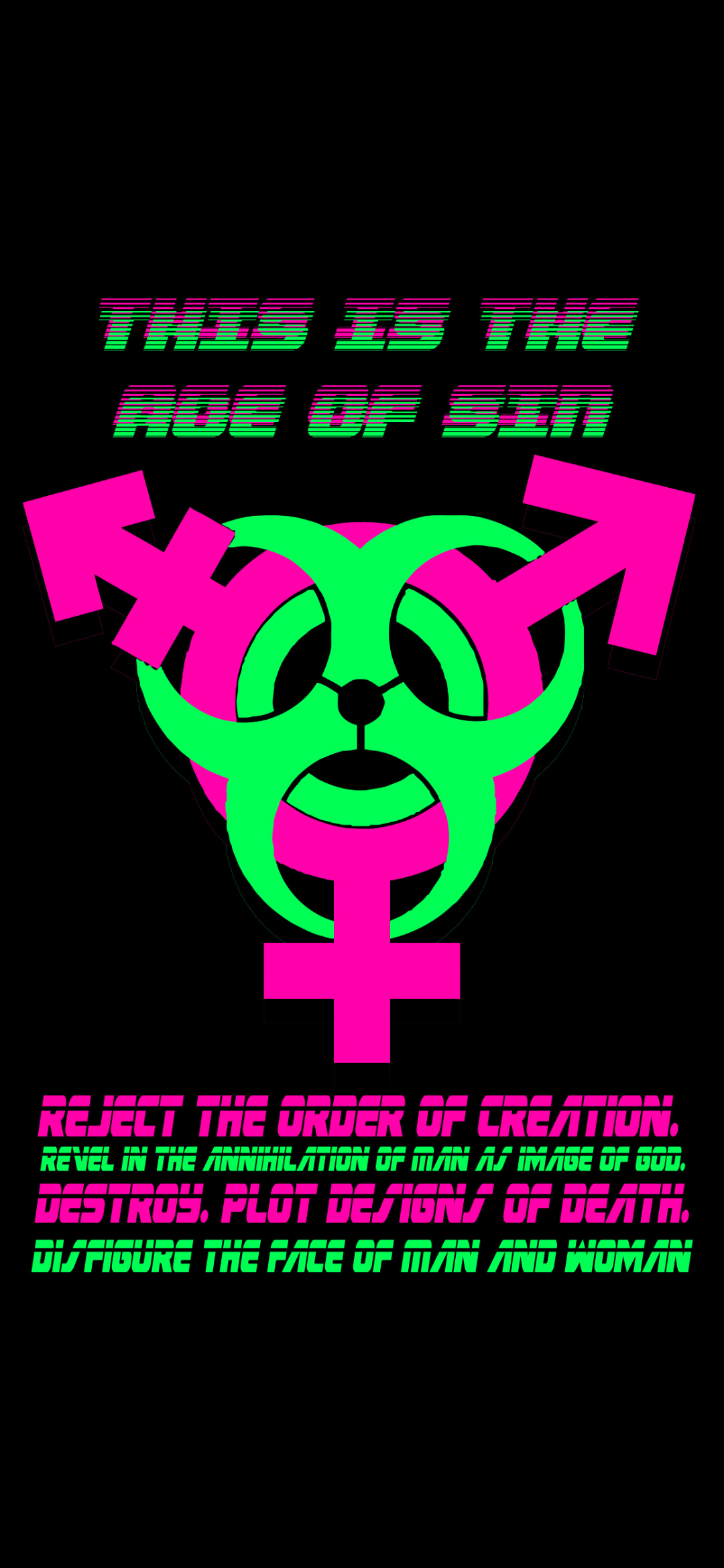I'm curious what you guys think about what changes would occur in the USSR and the world.
Reposting a (cut-down and edited) JoeySteel diatribe on this (with parts highlighted by me):
"do ya'll think the USSR would have been better off under Trotsky?"
No but this is a fun question. It is a question I have asked before when I did not know enough about the Communist movement and the Soviet Unions history. If you asked me today for instance I would say there is little I (or anyone hypothetical) would’ve done differently given the material circumstances at the time. And this leads back to liberal Great Man Theory. On this topic Plekhanov wrote a masterpiece to expound that history is not formed by individuals - the masses push forward their leaders (the individuals) and in their leaders they express their agency.
If, owing to certain mechanical or physiological causes unconnected with the general course of the social-political and intellectual development of Italy, Raphael, Michelangelo and Leonardo da Vinci had died in their infancy, Italian art would have been less perfect, but the general trend of its development in the period of the Renaissance would have remained the same. Raphael, Leonardo da Vinci and Michelangelo did not create this trend; they were merely its best representatives. True, usually a whole school springs up around a man of genius, and his pupils try to copy his methods to the minutest details; that is why the gap that would have been left in Italian art in the period of the Renaissance by the early death of Raphael, Michelangelo and Leonardo da Vinci would have strongly influenced many of the secondary features of its subsequent history. But in essence, there would have been no change in this history, provided there were no important change in the general course of the intellectual development of Italy due to general causes
–Plekhanov, On the Role of the Individual in History
I think Marxists that wonder about “this or that leader” should study this piece as it really expounds the Marxist view of the individual in history. With the role of the individual placed in its proper context let’s go down this rabbit hole. First we should ask why so many budding Marxists ask this question(as I myself did)
... [a bunch of stuff here about Trotsky and the Hearst Press] ...
So now onto whether Trotsky would’ve made a better leader. In order to do this he would’ve had to become leader of the Bolshevik party so let’s see if this is possible.
... [some historical context about Trotsky pre-revolution] ...
In 1927 the bloc of Trotskyites and Zinovievites were to put their platform of the opposition to the Bolshevik party at the 15th party congress. 724,000 members voted for the Central Committee and 4000 voted for Trotskys Opposition.
At the Fifteenth Party Conference, Trotsky and Zinoviev finally destroyed themselves politically. Trotsky made a lengthy speech and had to ask repeatedly for more time. He was interrupted constantly by ridicule and laughter. Zinoviev grovelled and begged forgiveness for his errors. He, too, was heckled and ridiculed. Both had been arrogant in power and now they were humiliated and defeated. It was left to Bukharin to make the final savage attack on them; the delegates, thirsting for blood, applauded loudly.
The main discussion at the conference was not on the opposition, but on Stalin's new theory of "socialism in one country." It bore the stamp of his mind and outlook, and it marked the beginning of the Stalinist era. The Russian revolutionary drive had been losing momentum since the end of the Civil War and the process had accelerated after Lenin's death. A new policy was needed that would inspire the Russian people to undertake the superhuman task of carrying their country on from the October Revolution towards socialism and communism. That policy was "socialism in one country." Its emotional appeal was overwhelming. It aroused a new fervor in the party, and pride in the revolution spread beyond the party ranks. It was a declaration of independence from the West and of faith in the capacity of their country to forge ahead, creating its own future alone and unsupported. Backward Russia, for so long treated as lagging on the outskirts of Western civilization, would show herself to be advanced and at the center of civilization in the coming millennium.
–Ian Grey, Stalin p.215
So we see Socialism in One Country as a foreign policy that drove a new fervour in the party and reinstilled the revolutionary drive in the Communist Party. Had Permanent Revolution and its eurocentric view won out I guess we can envisage the collapsing and disintegration of the Party starting in 1927. In November Trotsky was to present a statement to the Central Committee demanding it be printed and sent to members which was rejected. Trotsky had set up his own secret printing press which the OGPU found. He then setup his own opposition demonstration during the October celebrations which was a grave breach of Lenins non-factionalism and party rules and was promptly expelled from the party.
Conclusion - So we've basically got to the point where Trotskys ideas are discredited in the party where the CC can garner 724,000 votes for its program and Trotskys opposition can only get 4000 votes. So the only thing we can do here is "magic" Trotsky to becoming leader and instead of the Bolshevik party being full of Marxist-Leninists being full of Trotskyites (otherwise they'd have chosen a different leader to Trotsky). So if he's leader of the Bolsheviks I don't see him executing a successful revolution under his leadership. He was unable to unify one of the many parties he was in or led during that period as actual history so why would it be any different if he was leader of the bolsheviks at any point? We saw Lenin characterise him as having "no ideological definiteness" and merely "flitting from one group to the next with high sounding and pompous phrases". But lets magic him into producing a successful revolution.
So lets see they go all in on Permanent Revolution - with the collapse of all the revolutions across Europe which are stamped out by reaction in the early 1920s (Finland/Hungary/Germany/Romania etc. etc.) you would likely see a demoralised Communist Party due to the Trotskyite eurocentric belief no socialism can survive on its own and they were dependent on revolution breaking out in the West. At this point it means either the Communist Party dies a slow death starting in 1927 due to this demoralisation or we go on Trotskyite adventurism and Trotsky decides to use the Red Army to invade neighbouring countries. This was tried in 1920 and the Red Army suffered a resounding defeat in Poland which resulted in Poland annexing parts of Ukraine/Belarus and Lithuania from the Soviet Union. Given the state of the USSR in 1927 (only just recovering from World war, civil war then the 1921 famine). So Trotsky is successful in uniting the disparate Capitalist forces in 1927 instead of Stalins Socialism in One Country which is a masterplay at foreign policy. Don't believe me though I'll let Stephen Kotkin explain why it's a masterpiece [this was a streamable.com link but it's gone now]
If somehow Trotsky makes it to 1936 the USSR would be full of terror and paralysed defeatism due to Trotskys defeatism in his Revolution Betrayed where he states that
Can we, however, expect that the Soviet Union will come out of the coming great war without defeat? To this frankly posed question, we will answer as frankly: If the war should remain only a war, the defeat of the Soviet Union would be inevitable. In a technical, economic, and military sense, imperialism in incomparably more strong. If it is not paralyzed by revolution in the West, imperialism will sweep away the regime which issued from the October revolution.
–Trotsky, Revolution Betrayed, 1936
Compare this to Stalins speech of 1941
The enemy is not so strong as some frightened little intellectuals picture him. The devil is not so terrible as he is painted. Who can deny that our Red Army has more than once put the vaunted German troops to panic flight? If one judges, not by the boastful assertions of the German propagandists, but by the actual position of Germany, it will not be difficult to understand that the German-fascist invaders are facing disaster. Hunger and impoverishment reign in Germany to-day; in four months of war Germany has lost four and a half million men; Germany is bleeding, her reserves of man-power are giving out, the spirit of indignation is spreading not only among the peoples of Europe who have fallen under the yoke of the German invaders but also among the German people themselves, who see no end to war. The German invaders are straining their last efforts. There is no doubt that Germany cannot sustain such a strain for long. Another few months, another half-year, perhaps another year, and Hitlerite Germany must burst under the pressure of her crimes.
–Stalin, Speech at the Red Army Paradeon the Red Square, Moscow
continued
continued
In 1939 Trotsky was writing on the indepence of Ukraine. This is despite the fact the Pro independence forces were bourgeois natinonalists and fascists (who would go on to setup their own SS divisions and collaborate with the Nazis). Whislst the Pro Communist forces were pro Stalin. This is full knowing that Hitler had demanded conquering Ukraine for the oil fields and Lebensraum in Meinkampf which Communists had meticulously studied for obvious reasons. -Trotsky, Independence of the Ukraine and Sectarian Muddleheads
In the Moscow Trials (dismissed as frame ups by bourgeois and trotskyite historians) it's asserted Trotsky wanted to carve off a huge section of the Soviet Union for Hitler, specifically the Ukraine for assistance for Trotsky and Tukhachevksy coming to power. If Trotsky had been in charge of the Soviet Union the defeatism that coloured his outlook would mean capitulating to Hitler and gifting Ukraine to the Nazis The Nazis would now have the caucas oilfields to expand and be almost unhindered in their war in the West against Britain. With a hacked off Ukraine to the Nazis the Soviets are no longer in a feasible position to move millions of troops into Bessarabia in 1940 to deter the Nazis invading Britain nor do they now have the oil capacity (having lost Ukraine) to sustain a long war. There is little now to stop General Plan Ost (which was basically to elimate the slavic race and settle their lands with Germans).
In short the Communist party collapses in the late 20s due to demoralisation or adventurism which unites the bitterly anti-Communist forces. It's well known now that Britain colluded with Hitler under Chamberlain with Lord Halifax making statements like "Hitler and Britain will be a staunch bullwark against Communism". By trying to wage war for spreading Communism this would've ended the USSR there and then In Our Time: The Chamberlain/Hitler Collusion
If somehow it doesn't Trotsky would've carved off the Ukraine and left the Soviet Union a rump state leaving Hitler free to wage war on the West. Once Britain is defeated he almost certainly would've turned east but never having to have waged a war on 2 fronts. With a now diminished Soviet Union (Probably just a hacked back Russia as the Nazis had envisaged), the oil fields under Nazi control the Hitlerites do not come within 22km of Moscow - they take it. So ironically, Trotskys statement in 1936 becomes prophecy in Ww2
END
Some of the stuff at the end about Trotsky's defeatism and him surrendering territory to the Nazis is perhaps too speculative - we could presume that in this situation, him actually being in power would have affected his outlook and lead to him behaving completely differently. But this kind of goes back to the earlier points that there really isn't any reasonable situation where Trotsky does come into power - it's all several layers of hypotheticals to even get him into that position to begin with, and we're so far removed from reality that it's all speculation. As JoeySteel puts in, we "magic him into producing a successful revolution" - we can also just magic him into behaving in whichever way we wish to support our argument, whether that be making him out to be a disaster or conversely somehow a saviour of the Soviet Union.
In my view (as someone who's nowhere near as well-read, JoeySteel seemed to be pretty good about citing sources in his massive effortposts), I feel like (as JoeySteel says right at the start) there might not have been that much of a difference, because of that first point about the role of the individual in history - with Trotsky actually in power, he might have come to much the same conclusions and courses of action as Stalin. A leader doesn't just exist in a bubble of his own personal ideology, his thinking will inevitably be affected by the conditions he and his country are in. And of course, contrary to Western propaganda, Stalin wasn't some kind of absolute monarch - his actions were constrained by other elements of the government. He tried to resign like 5 times and they just rejected his resignation over and over again. Trotsky would have also faced that (to an even greater degree, assuming it didn't just end up in the scenario that the party just collapses because of how disliked he was) - we'd have to, once again, just magic him into having everyone important in the party support him and all his policies.
I even have some memories of a Trotsky quote with him basically admitting that he'd have done a lot of the same stuff as Stalin, but I was never able to find a source, so I'm not sure at this point if my mind just invented that at some point.
Yo dawg, I checked back here in first time in maybe a year or so to just see whats up and see one of my old effort posts on here 🙈
Bizarre as fuck!
Only bit I disagree with is
might not have been that much of a difference
The ref to Plekhanovs work is that Stalin (or really the CC of the communist Party) represented a different trend to Trotskyism with the point being if Stalin dies of a heart attack in 1923 another Marxist-Leninist would've taken his place and not much would've been different. Another member of the CC would've been pushed forward to represent the CC (as Stalin did) and become the identifiable face of CPSU
The Trotskyite trend was a miniscule faction of the CPSU and the CPSU had already labelled Trotskyism as an opportunist trend in the party at the 15th Congress (1926).
So at this historical juncture the masses pushed forward a Marxist-Leninist *not a trotskyist * so the question in itself becomes fantasy with having to magic Trotsky into taking positions he opposed
http://www.marx2mao.com/Stalin/SDD26.html#c4
PDF version of On the Opposition here which includes the debates between 1924-1927 in the party which gives a fuller picture. https://redarmy.online/viewtopic.php?t=153
And Harpal Brar did a massive book on Trotskyism Vs Leninism and the struggles during the CPSU and how the trots tiptoed themselves step by step into counter revolution (trotskys expulsion from the party leading the trots to go underground and attempt to sell Ukraine to Nazis etc. The recent Tukhachevsky transcript was released to which all but confirmed what the MLs said all these years). https://redarmy.online/viewtopic.php?t=147
The historical role of the trotskyites in the end is to disavow real socialism, real socialist progress and successful revolution with idealistic fantasy untainted by existing practice.
The trotskyites idealism and insistence in pursuing an opportunist line which dives into left adventurism (his policy on trade unions for eg.) or right opportunist (demanding the 2nd 5 year plan be stopped) is why they've been reviled in the communist movement for over a century now.
Stalin once made the point Trotskyism started as an opportunist (but genuine) trend in the working class movement. By the 1930s it was nothing other than a vehicle for foreign intelligence agencies and it has remained so ever since.
Anyway just saying Hello to all you fuckers, I hope you're all well and wishing you a Stalinist Xmas xxx
oh holy shit you're back :fidel-salute:
I've got a bunch of your stuff saved, they were amazing effortposts. Definitely great points here, thanks for elaborating.
Damn thanks man. I can't' say I'll be too active here nowadays as my time is funnelled into different activities but good to hear :)
I get hostile but i don't think it's sectarian to ask someone who was banned because they couldn't help themselves but shit on anarchists every single time whatever context they came up in if they are still keeping with their sectarian tendencies.
Oh yeah, those sections I edited out (since it's already so long to encompass two posts, I think the original was actually three) are full of Trotsky being a sniveling little shit, especially the stuff about him collaborating with Hearst, a literal fascist propagandist and one of the major figures behind the Holodomor bullshit
In the 1930s when Trotsky was exiled from the USSR the Hearst Press immediately began championing Trotsky as the true revolutionary and the one true Communist. Meanwhile the Hearst Press began to pay Trotsky for contributions to it! The Hearst Press which was full of rumour, bizarre stories like the frog boy, telling the world the Communists were going to “nationalise women” and that they starved their own people - was now championing a “true communist”. I think its obvious that the Hearst Press saw a rivet in the international Communist movement and now sought to stick a crowbar into it.
“He received $10,000 for his first articles for the Daily Express, New York Herald Tribune, New York Times, and other newspapers. Soon he would receive an advance of $7,000 from an American publisher for his autobiography, and for a series of articles entitled ‘The History of the Russian Revolution’ the Saturday Evening Post paid him $45,000.” -Volkogonov’s Trotsky: The Eternal Revolutionary, page 323.
And of course a great dunk on him by Lenin
In 1914 Lenin Characterised Trotsky as a waverer with no ideological definiteness
Trotsky, however, possesses no ideological and political definiteness, for his patent for “non-factionalism”, as we shall soon see in greater detail, is merely a patent to flit freely to and fro, from one group to another.
- Trotsky does not explain, nor does he understand, the historical significance of the ideological disagreements among the various Marxist trends and groups, although these disagreements run through the twenty years’ history of Social Democracy and concern the fundamental questions of the present day (as we shall show later on);
- Trotsky fails to understand that the main specific features of group-division are nominal recognition of unity and actual disunity;
- Under cover of “non-factionalism” Trotsky is championing the interests of a group abroad which particularly lacks definite principles, and has no basis in the working-class movement in Russia.
All that glitters is not gold. There is much glitter and sound in Trotsky’s phrases, but they are meaningless.
Trotsky was an ardent Iskrist in 1901—03, and Ryazanov described his role at the Congress of 1903 as “Lenin’s cudgel”. At the end of 1903, Trotsky was an ardent Menshevik, i. e., he deserted from the Iskrists to the Economists. He said that “between the old Iskra and the new lies a gulf”. In 1904—05, he deserted the Mensheviks and occupied a vacillating position, now co-operating with Martynov (the Economist), now proclaiming his absurdly Left “permanent revolution” theory. In 1906—07, he approached the Bolsheviks, and in the spring of 1907 he declared that he was in agreement with Rosa Luxemburg.
In the period of disintegration, after long “non-factional” vacillation, he again went to the right, and in August 1912, he entered into a bloc with the liquidators. He has now deserted them again, although in substance he reiterates their shoddy ideas.
Such types are characteristic of the flotsam of past historical formations, of the time when the mass, working-class movement in Russia was still dormant, and when every group had “ample room” in which to pose as a trend, group or faction, in short, as a “power”, negotiating amalgamation with others.
The younger generation of workers should know exactly whom they are dealing with, when individuals come before them with incredibly pretentious claims, unwilling absolutely to reckon with either the Party decisions, which since 1908 have defined and established our attitude towards liquidationism, or with the experience of the present-day working-class movement in Russia, which has actually brought about the unity of the majority on the basis of full recognition of the aforesaid decisions.
-Lenin, Disruption of Unity Under Cover of Outcries for Unity
Under cover of “non-factionalism” Trotsky is championing the interests of a group abroad which particularly lacks definite principles, and has no basis in the working-class movement in Russia
What does this part refer to?
Now let us examine the present situation from the point of view of Paris or Vienna. At once the whole picture changes. Besides the Pravdists and liquidators, we see no less than five Russian groups claiming membership of one and the same Social-Democratic Party: Trotsky’s group, two Vperyod groups, the “pro-Party Bolsheviks” and the “pro-Party Mensheviks”.[6] All Marxists in Paris and in Vienna (for the purpose of illustration I take two of the largest centres) are perfectly well aware of this.
...
Take a period of two full years—1912 and 1913. As everybody knows, this was a period of the revival and upswing of the working-class movement, when every trend or tendency of a more or less mass character (and in politics this mass character alone counts) could not but exercise some influence on the Fourth Duma elections, the strike movement, the legal newspapers, the trade unions, the insurance election campaign, and so on. Throughout those two years, not one of these five groups abroad asserted itself in the slightest degree in any of the activities of the mass working-class movement in Russia just enumerated!
...
It cannot be denied that some of the groups which, like Trotsky’s, really exist exclusively from the Vienna-Paris, but by no means from the Russian, point of view, possess a degree of definiteness
...
This example should serve the Russian “advanced workers”, with whom Trotsky has good reason to be so displeased, as a striking illustration of the lengths to which the groups in Vienna and Paris—who persuaded even Kautsky that there was “no Party” in Russia—go in their ludicrous project-mongering. But if it is some times possible to fool foreigners on this score, the Russian “advanced workers” (at the risk of provoking the terrible Trotsky to another outburst of displeasure) will laugh in the faces of these project-mongers.
It seems that he's talking about Russian emigre/exile socialists in Western & Central Europe. The "abroad" here seems to be less in the sense of some kind of shady NED-type thing (which is how it sounded to me at first), but more so socialists who haven't been to Russia in a long while, are completely unaware of and uninvolved in the development of the working class movement in Russia, and yet are apparently really opinionated on it (turns out, the more things change, the more they stay the same, Western leftists have been doing this shit since fucking forever).
I really don't know much about the pre-revolution history of socialism in Russia though, Lenin's dropping cool-sounding party names like "the liquidators", "the Machists" and "the Iskrists", which are completely alien to me. Apparently Russia had a whole lot of groups like this:
Such types are characteristic of the flotsam of past historical formations, of the time when the mass, working-class movement in Russia was still dormant, and when every group had “ample room” in which to pose as a trend, group or faction, in short, as a “power”, negotiating amalgamation with others.
Great post, did you save all of his effort posts? I would like a copy to reference while old posts are archived.
I think I had a whole bunch (but still probably far from every single one) favorited on here, but unfortunately had only managed to copy a few of them before we went into archive mode. The other ones I have are:
-
Marxism-Leninism can never be legitimised and Stalin can never be seen as a revolutionary hero - this is what all Left-AntiCommunists and Intelligence Services agree on
-
Of all the things Kruschev would do after Stalins death that Stalin should've shot him for - running tanks into Hungary was absolutely correct
-
Poles are the hardest cringe zoners in all of the cringe zone
-
CPSU ruthlessly purged the government and armed forces of their fifth column
(and a response to a "Traitors all the way down, right?" comment, which I think was a response to the above one, but I'm not entirely certain since the text file I copied stuff to isn't very well organized)
- the "absurdly-left" theory of permanent revolution
These are a lot shorter than the Trotsky one, so I could probably manage to fit them here in a post or two. Or I guess I could send them in a text file via some file-hosting site.
-
This isn't my opinion since I don't consider myself well-read enough to have one, but I've read some people say it's possible the USSR would have been invaded/destabilized sooner if they were more aggressive in exporting revolution, which IIRC is one of Trotsky's main deviations from Stalin (who still exported revolution to some degree, but was more careful about maintaining friendly relations with capitalist countries to allow trade and time for the USSR to industrialize). Happy to be corrected or learn some nuance if someone more educated wants to chime in.
Nothing. The decisions that people consider to be pivotal to the fate of the Soviet Union were guided by material circumstances and the whole of the government, not one man.
Decisions generally laid at stalins feet tend to have been made not from the perspective of what is right in his mind or heart, but what is best for the state.
Apparently the recent lore rework in TNO actually has Stalin play a decently big role as the leader of the Siberian People's Republic until the late 50s?
he was always a major plays in the regional state iirc. They are reworking it to be more morally grey.
Fun fact, you get to drag him out of the supreme soviet and to be shot if you play as Tukhachevsky
Well in the event, it was a young man in a white navy uniform saying how there need to be more democratic rule to reflect the spirit of Lenin and the Red Bonaparte just called the guards to drag him out and you hear a gunshot
so i guess the implication is the young man was Sablin
You'd have stalinist orgs handing out newspapers at demos instead of trots.
Other than that, no clue.
Immediate collapse, civil war, and opportunistic outside invasion.








